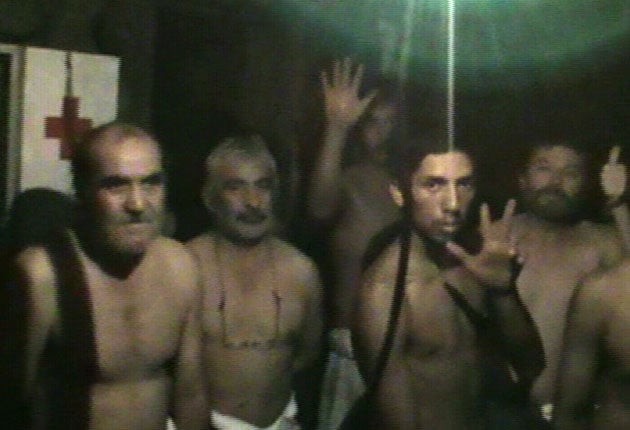Chilean miners had considered suicide and cannibalism while underground

The 33 miners whose rescue last year after 69 days inside a collapsed Chilean mine was watched with awe around the world at times pondered suicide and cannibalism while some among them found brief solace through marijuana smuggled to them in letters from wives, it emerged yesterday.
While the terror of their ordeal was never doubted, only now are details emerging of how close the men came to giving up hope or turning against each other. Four months later all but one of them is suffering nightmares and significant emotional problems as they try to readjust again to normal life.
The thoughts of suicide came to some of the men in their darkest moments before Day 16 when first contact was made with rescue teams on the surface. Victor Zamora, one of the survivors, spoke of suicide in an interview broadcast in the US last night on the CBS current affairs magazine, 60 Minutes.
"I said to a friend, 'Well, if we are going to continue suffering, it would be better for us to all go to the refuge, start an engine and with the carbon monoxide, just let ourselves go,'" said Mr Zamora, noting that everyone would have agreed with it had the first rescue shaft not made it through on the 16th day, adding that it wouldn't really have been suicide. "It was to not continue suffering. We were going to die anyway."
Once they had a direct line to the surface, the men began asking for items to make their incarceration more bearable. One, according to a new book by New York Times reporter Jonathan Franklin, was for inflatable sex dolls, but that was turned down because doctors feared they'd trigger jealousy between the men.
But what did make it into the crumbled mine, according to the soon-to-be published book called The 33, was marijuana. But the drugs were getting only to some of the men and those left out soon realised what was going and grew angry over that also.
"They were peeling away from the group in small cliques, wandering towards the bathroom. They never even offered me a toke," Samuel Avalos, another of the miners, says in the book, excerpts of which are being serialised in The Sunday Times. "When you saw five of them headed up to the bathroom, you knew what they were doing."
Mario Sepulveda, one of the leaders of the trapped group, told CBS that he was among those who contemplated cannibalism. "Food or no food, I was going to get out of there... I had to think about which miner was going to collapse first and then I started thinking about how I was going to eat him... I wasn't embarrassed, I wasn't scared."
Mr Franklin, the author of the book who also spoke on the CBS programme, says that he was told that they "had a pot and a saw ready" in case eating one of their own became necessary.
His book also reveals that serious hitches occurred during the rescue which lasted many hours. The Chilean authorities had at times spliced in old clips of the rescue so television viewers around the world wouldn't notice. It also suggests that the President of Chile, Sebastian Pinera, sought to ride down to the bottom of the mine with the first capsule to meet the miners before they came up. He was turned down.
So difficult have been the weeks and months since the rescue that Mr Zamora sometimes wishes he hadn't made it. "I can't have a normal relationship with my family. I'm not as affectionate with my child," he told 60 Minutes. "Before I went in, I was a happy guy," he adds, describing endless nightmares he now has. "Being trapped, watching my friends around me die, rocks falling," he says. "The other me is still in there."
Join our commenting forum
Join thought-provoking conversations, follow other Independent readers and see their replies
Comments
Bookmark popover
Removed from bookmarks